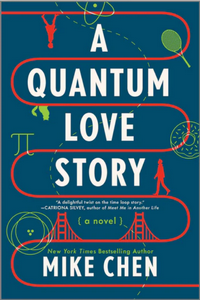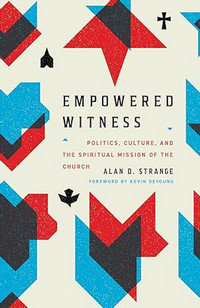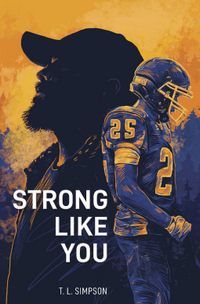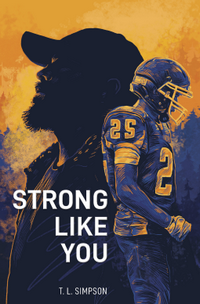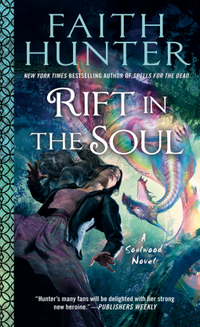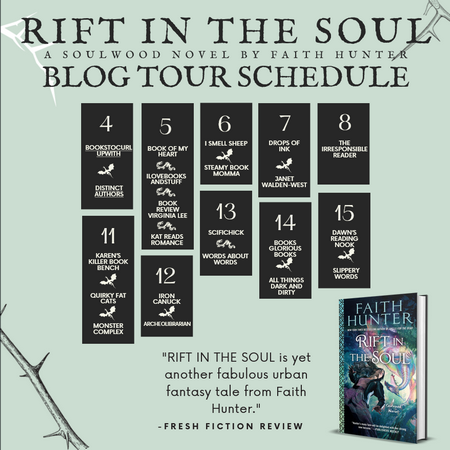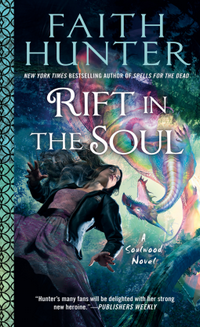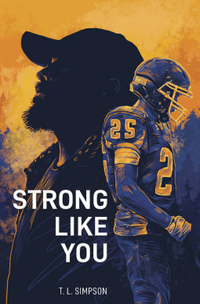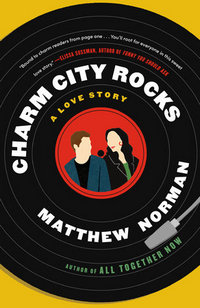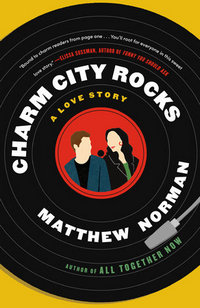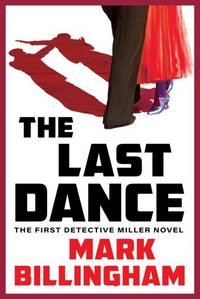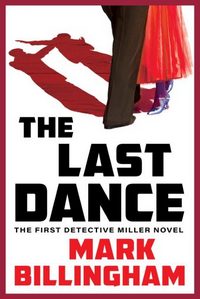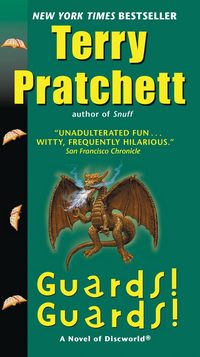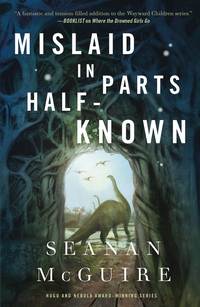I’ve talked recently about how easily distracted I am—how much trouble I’ve had focusing on things—I’m pretty sure that this post reads like the product of that. Hopefully, it makes enough sense to be worth your while.
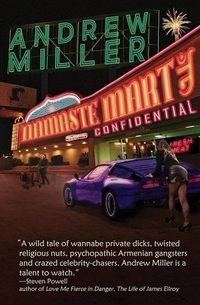 Namaste Mart Confidential
Namaste Mart Confidential
DETAILS: Publisher: Runamok Books Publication Date: May 1, 2024 Format: ARC Length: 246 pg. Read Date: April 4-9, 2024

What’s Namaste Mart Confidential About?
It seems (especially in film and novels) that Los Angeles is filled with people who’ve moved their to start their lives. That’s certainly the case for Richie Walsh, a stand-up comedian trying to build his audience and act, and Adam Minor, an aspiring novelist. While they wait for their artistic careers to take off, they need to pay their bills—and so they get jobs at the greatest grocery store in the country to be employed at (as far as I can tell, anyway—I’ve never known anyone to have such a good gig while working at one).
Some time back, however, the two of them stumbled upon a kidnapper and rescued his latest victim—getting them some attention from the local media and starting a side gig for them: Unlicensed Private Eyes. They’ve had a few successful cases, nothing as headline-worthy as their first however, and then entered a dry spell.
They’re pulled out of it when a co-worker’s mother hires them. She runs a few lingerie stores (higher-end stuff), and one of her top employees has gone missing. Shayla Ramsey has had a troubled past—escaping from the frying pan of a polygamous marriage to the fire of addiction on the streets of L.A. She’s put her life on the right track—and now she’s vanished, with both parts of her past equally likely to have pulled her back in.
Neither grocery store clerk could expect—or be prepared for—where the trial for Shayla takes them. But readers are going to have a blast going along for the ride.
A Real Kitchen Sink Novel
What doesn’t this book have, really? First off—and it’s easy to forget this, but you shouldn’t—it’s noir. Then you have a slice of L.A. life in 2013, and boy does it feel like it. There’s some comedy. There’s some satire. There’s commentary on the rise (and growing acceptance, it seems) of polygamous LDS groups*. There’s some drama. There’s some over-the-top action movie-style gunfights. There’s a splash of politics. There’s more than a little commentary on the nature of celebrity. There’s some actual sweetness through one of the smaller arcs. You’ve got Armenian mobsters. Ex-actors turned business executives. Ex-actors turned artists. Grocery store clerks and very odd customers (just that part of the novel alone could be turned into a decent sitcom). A strange Scientology-esque group.
* I read three novels that featured them last year alone. An odd trend in crime fiction.
This is not an exhaustive list—and I know that once I publish this post, I’m going to think of other things I could’ve included.
But the important thing to know going in—it all works. This jumble of seemingly incompatible ideas/topics that Miller brings to the table fit together in a way that feels natural. It’s like one of those cooking competition shows where the contestants are handed a bunch of ingredients that no one in their right mind should put together and they make something that gets that gets the approval of experienced chefs and restauranteurs. Miller ain’t getting chopped for this meal.
Anger
At one point in the show Justified, Winona tells her ex-husband, “Raylan, you do a good job of hiding it. And I s’pose most folks don’t see it, but honestly, you’re the angriest man I have ever known.” That line came to my mind a few times while reading this book—I don’t know that Adam or Richie are quite as angry as Raylan—but they’re noticeably younger than him. Unless something happens to them in the next decade or two (you know, presuming they survive this novel), I do think they might attain that high mark.
Adam says he wants to pursue this case for a different reason—and that might be true (he certainly believes it), but it seems to me that his life as a whole is driven by anger. Anger at his family for the way he was raised, the religion he was inculcated in, and the way they responded to him rejecting their faith and way of life. This spills over to an anger at any religion—or pseudo-religion/cult. It frankly gets in his way, and makes this case (and probably others, as well as other aspects of his life) much more difficult. Richie’s anger (more on that in a moment) may put them in immediate jeopardy a time or two, but I’d wager that Adam’s chip on his shoulder about religion/religious beliefs is a bigger detriment/hindrance to the duo.
I should probably add that while Adam thinks he’s angry at his family and their religion, I actually think he’s angry at God for not existing. Or at least not existing and behaving the way that Adam expects him to.
Richie’s anger is a little easier to see—there are no tears of this clown to be seen, just a violent streak that can be seen from miles away. Miller doesn’t give us as much insight into it as we get with Adam’s—but we may get more examples of it in action. Richie is definitely more honest with himself about the outward expression of this (although he might underestimate his ability to control it).
So, what did I think about Namaste Mart Confidential?
Based on his short story in Jacked, this was not the novel I expected from Miller. But I don’t know what he could’ve written that would’ve made me think he (or anyone else) would produce something like this book.
Anytime I hear “unlicensed private investigators,” my mind goes to the fantastic FX show, Terriers and while Adam and Richie aren’t Hank and Britt, I could see Adam becoming Hank-like with another decade or more experience (I think Richie’s already a better P.I. than Britt). The designation allows Miller to take advantage of all the P.I. tropes he wants to—and to keep these guys strictly amateur. So they do not have to follow all the rules a licensed P.I. would have to and make dumb mistakes and act like renegade escapees of a cozy novel. It’s definitely a best-of-both-worlds kind of situation and a great choice by Miller.
I cannot tell—and I’d hesitate to speculate—if Miller has a lot he wants to say about religion and faith, or it it just fit the plot and the character of Adam. I’d buy either explanation (or both). I would like to see Adam and Richie back in action in a story that didn’t have that much/anything to do with religion to see how Adam acts when he doesn’t have something like that to bounce off of, I think it’d be interesting to see the contrast.
This is a very L.A. novel—even if you disregard the Hollywood-adjacent portions (although it would be difficult to do). This book wouldn’t function the same way were it set in Chicago, Dallas, Boston, or Orlando. It would take someone better at analyzing these things—or at least in describing them—to tell you why. But these events need L.A. (with a quick detour to Mexico), and I relish things like that. By and large, Spenser, Elvis Cole, Madison Kelly, or Kinsey Millhone can take place just about anywhere. But Lydia Chin/Bill Smith, August Snow, Annie McIntyre, or Adam Minor/Richie Walsh need their geography*. I’ll read any of those at any chance I get, clearly, but there’s something distinctive about those tied into their cities like that.
* Obviously, they can travel outside their typical bailiwick, but then you’ve got the duck-out-of-water thing going on.
I seem to be jumping around a little bit in this section (and perhaps the entire post), because there are just so many aspects of this novel that I want to talk about and I’m not certain how to link them all together—and which ones I have time and space to cover. It may be a bit hyperbolic to say I could open this book up to any random page and find something I could talk about for at least a paragraph or two—but only a bit. It’s not often I think that in a P.I. novel—and I love it.
Miller nails the pacing of this novel. The circuitous path our duo takes to track Shayla fits both their strengths and weaknesses. The dangers they face feel genuine—and their lack of ability to really cope with some of that danger endears them to me more than when they’re being competent (not that I don’t enjoy them doing their job well, too). Familiar and unexpected all at once—Miller tackles this novel like a pro, and I can’t wait to see what he does next. (although if he wants some suggestions, I’d point him to the short story I talked about a few paragraphs back)
If you’re in the mood for a gritty P.I. novel with a lot of zip, look no further than Namaste Mart Confidential.
Disclaimer: I received a copy of this ARC from the publisher, without any expectation that I would write about it—but how could I not?

This post contains an affiliate link. If you purchase from it, I will get a small commission at no additional cost to you. As always, the opinions expressed are my own.
![]()



